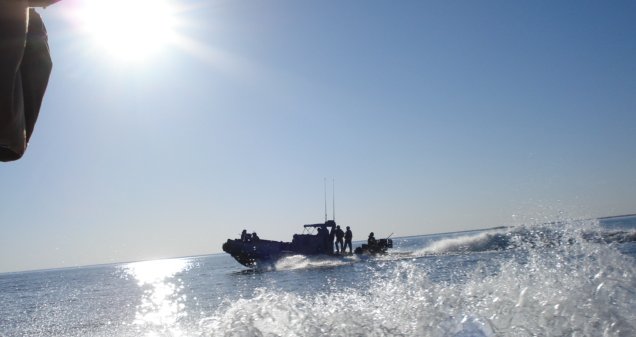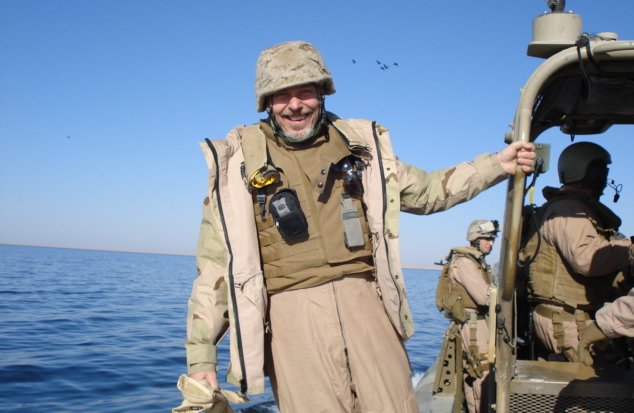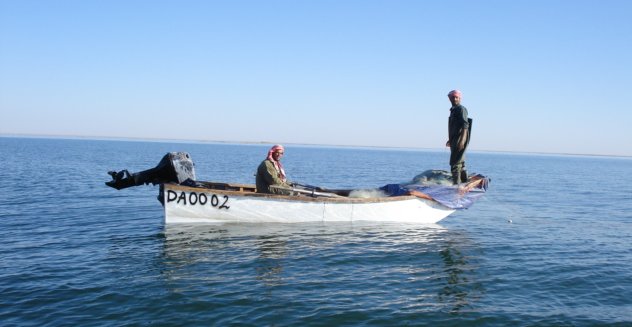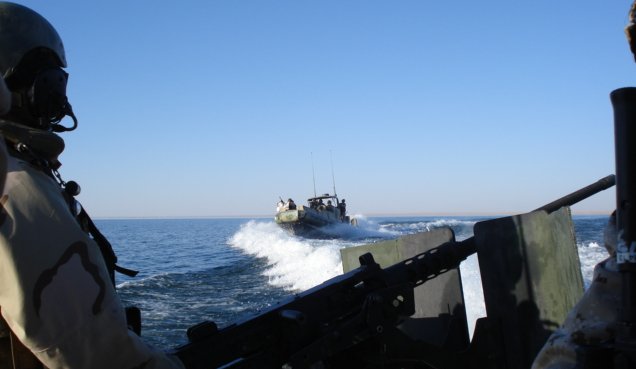
Western Iraq is riverworld. Very little of any significance exists very far from the river. The distance we are talking about is often not much farther than a strong man can pitch a baseball and certainly within visual and shooting range. So patrolling the rivers and reservoirs of Iraq makes a lot of sense and that is what the U.S. Navy is doing in Iraq. They interdict the bad guys and stop them from crossing the river, using it as a highway or hiding in the weeds and reeds on the shores. The insurgents thought they were safe on the little islands and in the marshes. They were mistaken.
According to the commander, Riveron duty in Iraq is a much sought after posting. I can understand why. There is the proper mix of action, adventure and call of duty. This is not the first time The U.S. Navy patrolled rivers in far away places. We had swiftboats in Vietnam and we used to run gunboats along the Yangtze in China. Remember that Steve McQueen movie, “Sand Pebbles?” In 1937, the Japanese attacked the USS Panay on the Yangtze. Four years before Pearl Harbor, it was the first U.S. ship sunk by the Japanese in what became World War II. We reacted weakly, making the Japanese bolder.
Below is me on the boat. Funny thing, I worried about falling out of the helicopter and making a Wile E. Coyote thud on the desert floor, while I worried not at all about the higher probability danger of falling in the cold water and maybe sinking to the bottom with that flack vest. I guess I figured the water was survivable. The life vest will deploy … in theory.

This is my second cruise on Riveron boats on Lake Qadisiya. The seasonal difference in the water is evident both in level and composition. Last fall, water levels were dropping after the hot & dry summer and the water was a clear aquamarine because it has a chance to settle out. Now it is raining and snowing in the mountains in Turkey and Syria. The runoff is increasing the river flow and filling the reservoir with water of a greenish hue, with organic matter and sediment.
This is prime fishing season. The lake features various types of carp, eel and (to my astonishment) lake trout. I could not find out if the trout were native or introduced. I know that trout are cold water fish. Although the water temperature today was a cool 47 degrees, in the summer it gets warmer than you would tolerate for a hot bath. I cannot believe trout can take that. I suppose there are cooler pools.

One of the Riveron duties is to check boats crossing the lake and river. We did that with a few of the fishing boats. Fortunately, all the papers were in order and these guys had the rough hands and net throwing skills of legitimate fishermen. We also took the opportunity to do a little “information fishing” to find out some things it might be useful to know. Most of the time people are happy to tell us (complain) about fuel shortages or the high prices of the things they buy. These guys complained little, evidently because fishing was so good. They were a little unhappy that fishing near the dam was off limits. The steady churning of air into the water creates the best fishing spots. Fishing season lasts until April, when the lake is closed down for a month to let the fish spawn. We wondered what the fishermen do for that month. They get by.
Our fishermen were from the Jujhayfi tribe. The sheik of their tribe was hosting us for a feast that evening, and these guys were visibly pleased when we told them. Their reaction, I suppose could have been translated as Jujhayfi rule. We gave them a couple of bottles of water and a bag of candy and went on our way. My observation is that Iraqis are very fond of sweets. Later that day, the Colonel passed around a big jar of chocolate covered raisins to some of the fishermen’s Jujhayfi cousins at the feast. They didn’t last long.
Below is our partner boat jumping the wake. Why do they do it? Because they can.

